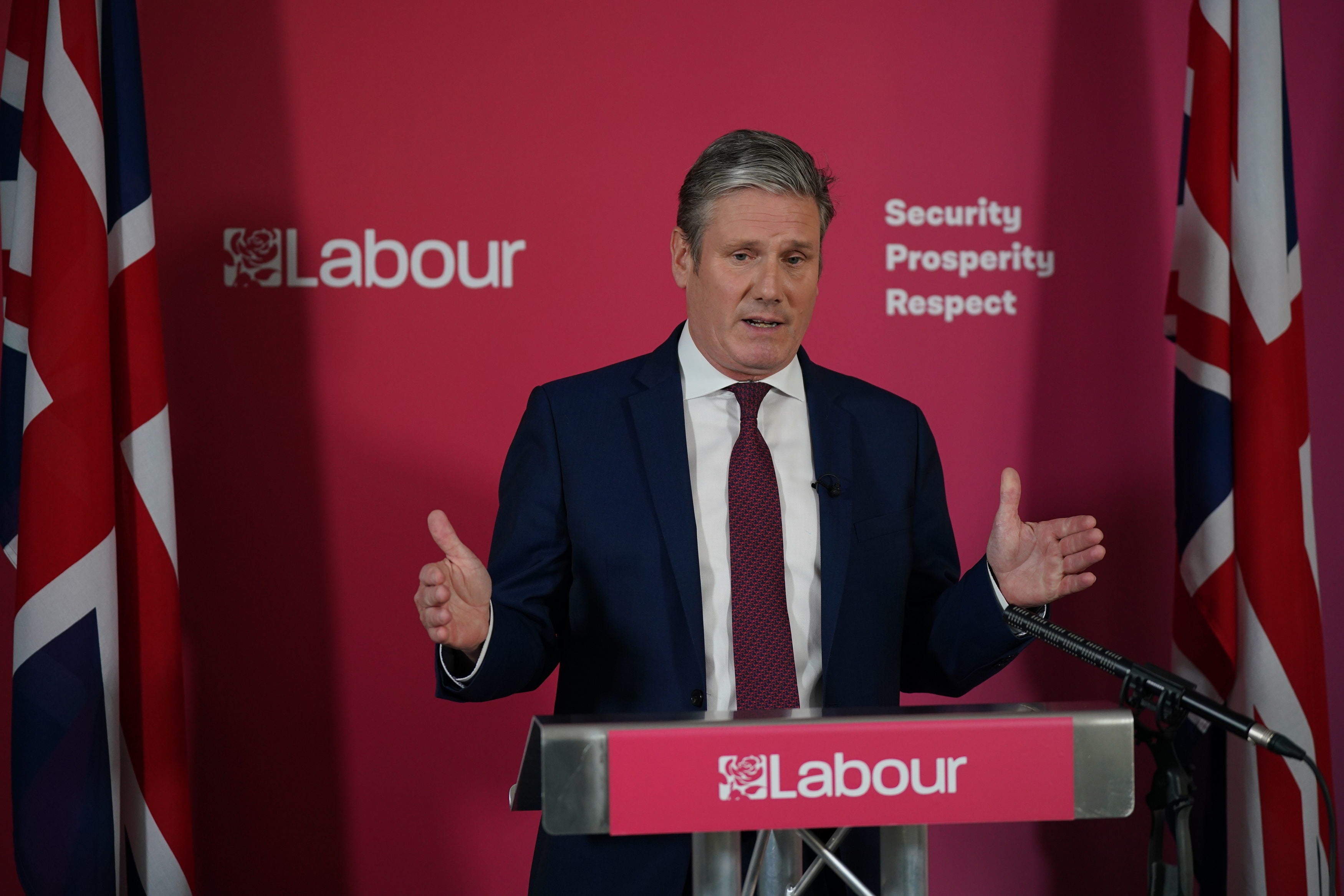Keir Starmer’s promise to resign over a Beergate fine is a huge gamble
This could be the defining moment of Starmer’s leadership – something that most people will notice and remember


Keir Starmer has done the brave and honourable thing by announcing that he would resign as Labour leader if he is fined for breaking lockdown rules in April last year by having a beer and takeaway curry at the Durham Miners Hall.
It is also the right thing politically. Never mind the lack of clear blue water between the two main parties on policy; this dramatic move puts an ocean between him and Boris Johnson on the question of integrity. It shines an even more unflattering light on the prime minister’s refusal to resign over his fixed penalty notice for attending a birthday event in the Cabinet Room, and will add to Johnson’s political pain if he receives any more fines.
This could be the defining moment of Starmer’s leadership – something that most people will notice, welcome and remember. There haven’t been many – or perhaps any – in his two years as Labour leader. It’s not quite the Clause IV moment that Tony Blair achieved on policy by ditching Labour’s commitment to public ownership to show his party had changed. But when Johnson has become the first PM to be fined in office and investigated for misleading parliament, it is a powerful symbol.
Of course, it is a huge gamble because if Starmer is fined, there can be no wriggling out of his pledge. His deputy Angela Rayner has made the same promise if she gets a fixed penalty notice for attending the same event. If Starmer has to go, he will leave his party in a much stronger position to fight Johnson; in turn, that could make Tory MPs more likely to discover the backbone to oust the PM.
Starmer had no alternative after Durham Police reopened its investigation into Beergate following a daily barrage of stories in the Daily Mail. An uncomfortable Labour leader was less than convincing in his response last week but has now regained the moral high ground. “He is different and must live up to the standards he has set for himself,” one ally told me.
As Starmer told journalists this afternoon: “This is about me.” The former director of public prosecutions has made integrity and support for the rule of law his unique selling point – and it is a powerful weapon against a prime minister who doesn’t lose sleep about breaking international law, unlawfully suspending parliament or being fined for breaching his own lockdown rules. Labour has also got under the Tories’ skin by attacking them about rising crime.
Starmer was right to accuse his accusers of “just trying to feed cynicism, so the public believe all politicians are the same”. Indeed, a draw would amount to a big win for a Johnson-led Conservative Party. He went on: “I am here to say they are not. I believe in honour, integrity and the principle that those who make the laws must follow them.” (Over to you, prime minister.)
To keep up to speed with all the latest opinions and comment, sign up to our free weekly Voices Dispatches newsletter by clicking here
Some Tories were jubilant when the reopened Beergate inquiry neutralised Starmer’s effective attacks on Partygate. Wiser Tory heads were quick to sense danger: the spotlight would return to Johnson if the Labour leader promised to quit if fined. That has now happened.
Starmer’s enemies, of course, will never be satisfied. They are already jumping up and down because he stopped short of pledging to stand down if Durham Police concludes he committed a minor breach of the rules but does not impose a retrospective fine (as it did over Dominic Cummings’s infamous trip to Durham during lockdown).
Critics will also accuse Starmer of putting pressure on the police not to fine him because it would have such big consequences. They didn’t make a fuss when Johnson allies briefed newspapers that no criminality would be found in Partygate, and that the PM was confident of escaping a fine.
The other consequence of Starmer’s promise is to highlight the difference between a one-off event on the campaign trail and the 12 Downing Street parties being investigated by the Metropolitan Police, several attended by the PM himself. I think the public gets that. Starmer’s move could make his leadership but it could also break it.
Join our commenting forum
Join thought-provoking conversations, follow other Independent readers and see their replies
Comments